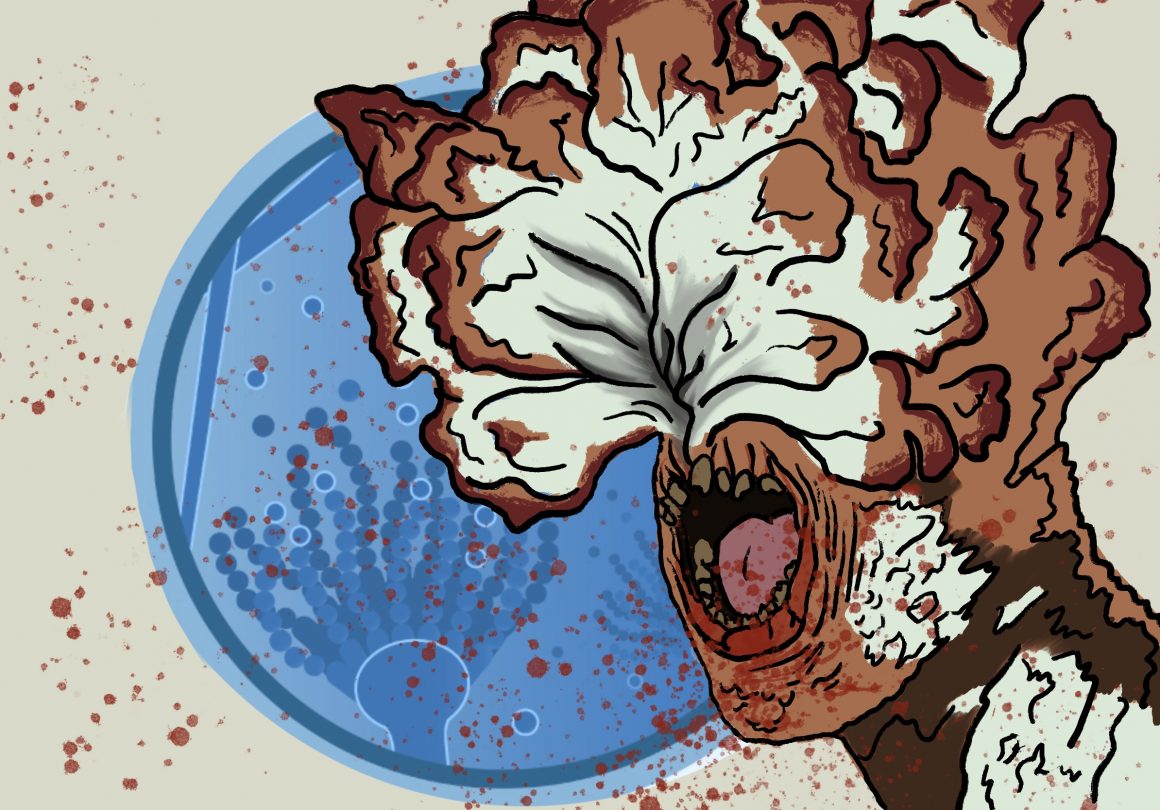
U of C researchers shed new light on lethal pulmonary fungal infection
By Ana Bodevan, February 13 2023—
With the release of HBO’s The Last of Us in mid-January, it seems like everyone is a bit more wary of fungi. Despite nothing indicating that mind-controlling fungi targeting humans and turning us into murderous creatures will ever be a reality, they can be threatening to our health.
There is no escape from fungi. They are common in our environment, and we come in contact with hundreds to thousands of them daily. Fungi such as Aspergillus, for example, are breathed in large quantities every day. While they are normally harmless to healthy people, they can cause fatal infections in people with weakened immune systems. Yet, it is becoming more recognizable in the literature that infections like the flu and COVID-19 may raise the risk of aggressive Aspergillus infections.
International organizations recognized that very little is known about the threat fungi pose to our well-being and pointed out that further research is needed on the theme. Researchers at the University of Calgary in association with McGill University conducted research on the association between influenza, COVID-19 and human immunity to fungal infection with the support of the Canadian Institute of Health Research (CIHR). The study was published in Science Translational Medicine and provided important insight on how influenza and COVID-19 compromised human immunity to fungal infections.
The Gauntlet spoke with Nicole Sarden, a PhD candidate at the U of C and the first author of the study, about their findings and next steps.
“My recently published research looked into a phenomenon that was quite striking, which was that people who had either the flu, which means that they had an infection with the influenza virus, as well as those who had COVID-19 were at higher risk of having an infection with fungi that healthy humans should not be sensible too,” explained Sarden.
“This fungus, which is called Aspergillus, is widely present in the air we breathe, and every day we inhale hundreds to thousands of this force and we are not affected,” she continued. “But it had been recorded in the literature that patients were dying because they had influenza and then they were having lethal infection with this fungus [which] should otherwise be harmless.”
Sarden continued explaining the modelling used for the research, which consisted of studying how mice infected by COVID-19 and influenza reacted when exposed to the fungi. The study showed that white cells fundamental to defeating fungal infections were destroyed by the virus, making them more susceptible to infection.
“We basically found a way to treat mice through our model and restore this lost protection so they are able to fight the infection,” she said. “The next step is to do a clinical trial, and actually see if this provides any benefit to humans and patients that are battling this virus and fungi.”
Sarden, who was interested in Health Science from a young age, pointed out how fulfilling it was to have her research published with real chances of a clinical trial being successful.
“I felt that someday something I did in the laboratory could have an impact on someone that is battling, in this case, a viral infection,” she said. “So for me, finding these mechanisms in the lab that could one day benefit someone is the main motivation and it’s very exciting.”
